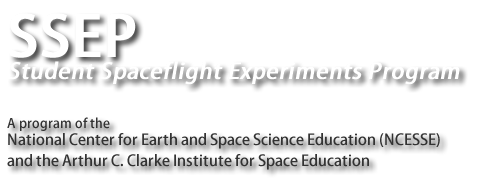The National Center for Earth and Space Science Education (NCESSE), and Arthur C. Clarke Institute for Space Education, are proud to introduce the National Step 2 Review Board for SSEP Mission 19 to the International Space Station (ISS), reflecting a combined Mission 19 participation by 20 communities.
On December 3 and 4, 2024, the Board met via Zoom, to review 60 finalist proposals for student flight experiments submitted from across 20 communities participating in Mission 19.
Listed below are the 27 Board Members—scientists, engineers, and science educators from academia, federal agencies, commercial entities, and national science education non-profits.
For Mission 19 to ISS, a total of 7,288 grade 5-16 students were formally engaged in designing microgravity experiments suitable for flight aboard ISS. At the conclusion of the experiment design phase, a total of 1,178 proposals were submitted by student teams, and 397 proposals were forwarded for review by SSEP Step 1 Review Boards in the communities. In 1 of the 20 Mission 19 communities, community leadership opted to fly 2 experiments.
For Step 2 review, the Board Members were divided into 7 teams, each comprised of both researchers and science educators, and each team responsible for review of proposals from three SSEP communities. The Board Members spent a great deal of time providing thoughtful comments for all 60 proposals, which were forwarded to the proposing student teams by NCESSE. The review went well beyond what is typical of reviews for professional research proposals given the deep recognition that the review process, and the comments back, were critically important teachable moments for the student researchers that worked so hard on their proposals. Through SSEP, we want to immerse students in real science. The review process is very much a part of real science, and that process therefore needs to be transparent and a learning experience.
NCESSE reviewed all comments from the Step 2 Review Board to assess if there were any outstanding questions that needed to be addressed by the selected student flight teams, and by December 20, 2024, NCESSE formally notified each community of their selected flight experiments.
You are invited to explore the selected flight experiments and honorable mention finalist experiments for Mission 19 to ISS.
A Note to All Mission 19 Student Research Teams
To the thousands of students that participated in SSEP Mission 19 to ISS, regardless of whether your proposal was selected for flight, and regardless of whether it formally went before a Review Board, it is important to recognize the endeavor in which you’ve been engaged – real science. This is how real research proceeds from opportunity, to defining a proposed research program, to submission of a proposal, to formal proposal review and selection. In the professional world, comments back from the Review Board allow a team to rethink and refine their proposed research, so they can submit a better proposal for the next opportunity. We have indeed had SSEP student teams that did not get selected for spaceflight the first time, but did get selected with a refined proposal as part of their community’s next flight opportunity.
Reflect on the overall experience, and recognize that you and your team owned this process – you came up with a microgravity experiment of interest to you, and designed it to fly in a research mini-lab that has a very real set of constraints on its operation. So get excited about what you’ve achieved, and get excited about science, technology, engineering, and mathematics (STEM). We challenge you to seek out new opportunities in STEM where you can be curious and take ownership … in the journey.
Finally, recognize that YOUR COMMUNITY now has an experiment destined for the International Space Station, that you are part of this historic adventure, and now you and your community can rally around your flight experiment and root for its success.
The SSEP National Step 2 Review Board for Mission 19 to ISS—
1. Dr. Michelle Brooks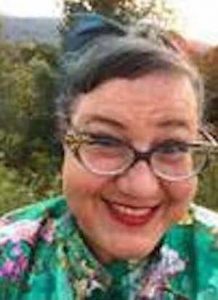
Adjunct Staff Member, National Center for Earth and Space Science Education
Senior Management, Office of Professional Training
American Chemical Society
Michelle Brooks is a Senior Manager at the American Chemical Society where she manages the ACS Approval Program for undergraduate chemistry departments. Michelle received her Bachelor’s degree in biochemistry from Eastern Michigan University and her Ph.D. in biophysical chemistry from Michigan State University where she studied the molecular orbital structure of radicals involved in photosynthetic processes by using electron magnetic resonance spectroscopy. As an NIH postdoctoral fellow at Columbia University, she studied chemically induced dynamic polarization by using solid state NMR. Michelle started her scientific career in academia, where she taught students to love pchem, but when an opportunity to develop and manage a graduate program in biology arose, she moved to administration and eventually found her way back to undergraduate education and chemistry at the ACS. As an administrator and manager, her passions lie in developing processes, creating assessment tools, and finding new ways to accomplish old tasks.
2. Dr. James Churchill
Senior Advisor
National Institute of Mental Health
Dr. James Churchill serves as Senior Advisor to the Director at the National Institute of Mental Health (NIMH). Dr. Churchill is a neuroscientist and has conducted research evaluating the anatomical and physiological basis of learning and memory. During his tenure at the NIMH, Dr. Churchill has managed a variety of projects from supporting young investigators to managing BRAIN Initiative efforts in the areas of next generation human brain imaging and neuroethics to the coordinating interagency research on suicide.
3. Dr. Talita B. Gagliardi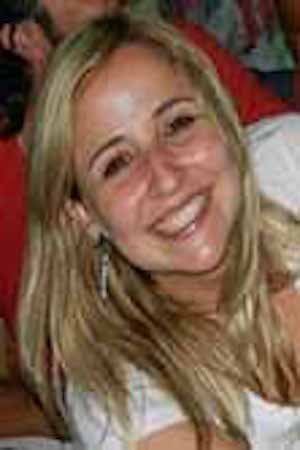
Senior Scientist
Emergent BioSolutions Incorporation
Talita B. Gagliardi is Senior Scientist at Emergent BioSolutions. She graduated with a degree in Biomedical Science, and a specialization in Clinical Analysis from UNESP (Brazil). Virology expert, worked for 15 years developing studies about pathogenesis and immune response against respiratory virus infections. It started with a Master’s and Ph.D in Virology obtained from USP (Brazil); followed by 4 years of research training as Post-doctoral Fellow at USP (Dr. Eurico Arruda as supervisor; Brazil), and 1 year at Columbia University (Dr. Vincent Racaniello as supervisor; USA); finally, 3 years working as Research Associate at University of Maryland (Dr. Eurico Arruda as PI; USA). Switched to Industry, she worked for 3 years with the development of mRNA and CHO-derivated protein vaccines at GSK Pre-Clinical and Pre-GMP stages, as Thermo Fisher Senior Scientist. Currently, she works with antibody discovery and cell line development platforms to produce monoclonal antibodies as potential candidates for therapy against emergent infectious diseases.
4. Theresa M. Geiman, Ph.D.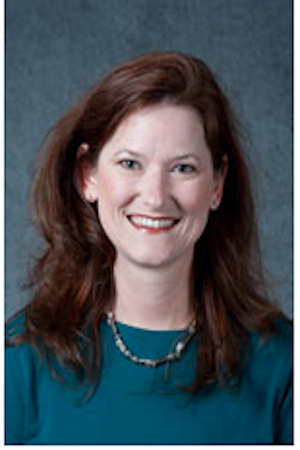
Assistant Professor, Department of Biology
Loyola University Maryland
Dr. Geiman completed her undergraduate studies in Biochemistry from McDaniel College, followed by a Ph.D. in Molecular and Cellular Oncology from The George Washington University. She performed her thesis research at the National Cancer Institute-Frederick, generating and characterizing a knockout mouse model of the Lsh/Hells chromatin remodeling gene. She continued her research training with postdoctoral fellowships at the National Institute of Child Health and Human Development and the National Cancer Institute at NIH. Her research focuses on studying proteins involved in epigenetic mechanisms such as DNA methylation, chromatin remodeling, and histone modifications through the use of in vitro cell culture and in vivo mouse models. Of particular interest is the study of how altering the expression of these epigenetic genes, and therefore the packaging of the cellular DNA, is involved in the processes of early mammalian development, cellular differentiation, and cancer. In addition to her research, Dr. Geiman is also involved in programs to encourage students to pursue careers in biomedical research, as well as those that enhance training for students interested in careers in cancer research.
5. Benjamin Goodman, Ph.D.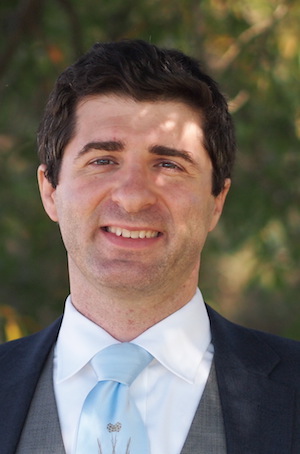
Senior Scientist
NASA Research and Education Support Services
Ben Goodman is a peer review administrator for NASA whose work currently focuses on programs spanning the Human Exploration and Operations Mission Directorate, Science Mission Directorate, and the Space Technology Mission Directorate. He has been a peer review administrator for 12 years, and has gained a familiarity with a wide variety of NASA programs and research portfolios while recruiting and serving as referee for many panels and solicitations, especially those dealing with NASA life sciences programs. Before working for NASA, he performed research on mitotic spindle assembly in Xenopus and cell culture while at Johns Hopkins University, where he received his Ph.D. in Cell Biology, and also served as a post-doctoral researcher at the NIH where he worked on microtubule post-translational modifications.
6. Dr. Vincent Holahan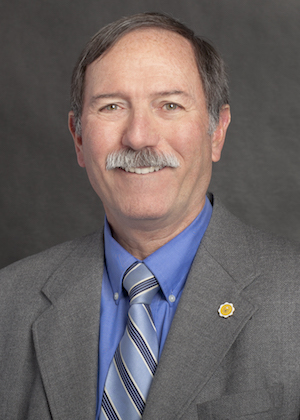
Senior Level Advisor for Health Physics
U.S. Nuclear Regulatory Commission
Dr. Holahan is responsible for developing technical standards for issuing federal regulations and guidance to possess and use radioactive materials by academic, industrial and medical licensees. His specific research interest is public and occupational health and developing guidance to limit occupational and public exposure to ionizing radiation during routine and emergency situations. He also is the current U.S. Representative to the United Nations Scientific Committee on the Effects of Atomic Radiation. Before joining the Nuclear Regulatory Commission in 1996, he was a senior program officer to the Board of Army Science and Technology at the U.S. National Research Council/National Academies of Science. Dr. Holahan completed 35 years of active and reserve service in the U.S. Army as nuclear medical sciences officer. His military research interests include the study of both ionizing and non-ionizing radiation and its impact on military performance. Dr. Holahan received a Bachelor of Arts degree in chemistry and a Bachelor of Sciences degree in biology from Gonzaga University. He received his doctoral degree in Radiology and Radiation Biology and an interdisciplinary degree in Cellular and Molecular Biology from Colorado State University. His graduate research interests include the combined use of heat and ionizing radiation as a new modality for cancer treatment.
7. Andrea Jones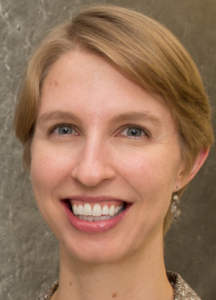
Public Engagement Lead, Solar System Exploration Division
NASA Goddard Space Flight Center
Andrea Jones is a planetary geologist and the Public Engagement Lead of the Solar System Exploration Division at NASA’s Goddard Space Flight Center. She and her team share NASA planetary science research and discoveries with audiences around the world. Andrea is the Public Engagement Lead for NASA’s Lunar Reconnaissance Orbiter, the Sample Analysis at Mars instrument suite onboard the Mars Science Laboratory Curiosity rover, and the DAVINCI mission to Venus. Andrea is on the organizing team for the Death Valley Dark Sky Festival and the Director of International Observe the Moon Night, an annual worldwide celebration of lunar and planetary science as well as our personal and cultural connections to the Moon.
8. Dr. Beatrice Kondo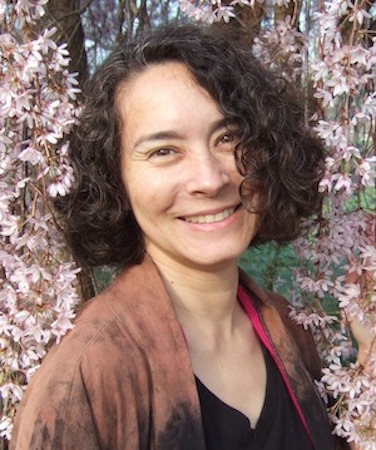
Assistant Program Director/Senior Lecturer, Center for Biotechnology Education
The Johns Hopkins University, Krieger School of Arts & Sciences
Dr. Kondo’s undergraduate studies were at Loyola University in Baltimore. She then began a career in software test engineering, testing Hubble Space Telescope management and control software, before transitioning to the private sector, testing communications systems. Eventually the siren song of higher education lured her to a return into academia, and she completed a doctorate in Biological Sciences at the University of Maryland, Baltimore County in 2006. Her publications are in the area of molecular phylogenetics, with a special emphasis on closely-related species and the evolution of migration in New World Orioles. Recognizing a love of teaching during her graduate career, Dr. Kondo pursued a teaching post-doc at Cornell College in Iowa, famous for its unusual one-course-at-a-time curriculum. After this, she taught for four years in the undergraduate program of the Department of Biology at The Johns Hopkins University, before joining the Advanced Academic Programs, Center for Biotechnology Education at Johns Hopkins in Fall 2011. She serves as Asst. Program Director for the MS in Biotechnology as well as for the Post-master’s Certificate in Sequence Analysis and Genomics. Class she teaches in include Personalized Medicine and Genomics, Comparative Animal Physiology, and Advanced Cell Biology.
9. Dr. Daniel Larson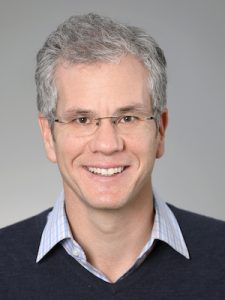
Senior Investigator
National Cancer Institute
The primary goal of Dan Larson’s laboratory at the National Cancer Institute is to understand gene expression in eukaryotic cells, starting from the mechanistic behavior of individual macromolecules and proceeding to their regulation in cells and tissue. The laboratory utilizes a battery of biophysical, molecular and genomic approaches, including single-molecule microscopy, RNA visualization in fixed and living cells, computational modeling of gene regulation, and nascent RNA sequencing. Dr. Larson helped pioneer in vivo single-molecule studies of transcription and splicing. Dr. Larson was trained in biophysics, molecular biology and cell biology, receiving a B.S. in physics from the Ohio State University, a Ph.D. in biophysics from Cornell University, and completing postdoctoral training in molecular and cell biology at Albert Einstein College of Medicine. He has never been to space.
10. Dr. Juliette Lecomte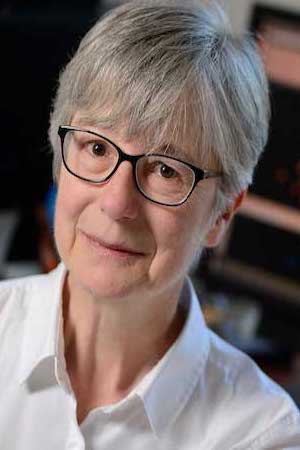
Professor, Department of Biophysics
Johns Hopkins University
Juliette Lecomte is a Professor in the T.C. Jenkins Department of Biophysics in the School of Arts and Sciences at Johns Hopkins University in Baltimore. She is a physical chemist by training and specializes in the application of nuclear magnetic resonance spectroscopy to proteins. Her research interests include the molecular evolution of the hemoglobin superfamily. Currently, her group seeks to understand the thermodynamic and dynamic principles underlying adaptation to extreme environments, specifically those encountered by deep-sea unicellular organisms.
11. Dr. Jeff Leips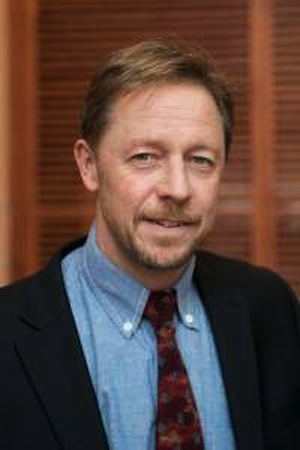
Professor, Department of Biological Sciences
University of Maryland Baltimore County
Dr. Leips obtained his PhD from Florida State University in the field of evolutionary ecology and did his post doctoral research at NC State University in quantitative genetics. Research in the Leips lab is focused on understanding the genetic basis of aging using the fruit fly, Drosophila melanogaster, as a model organism. Research interests include identifying genes that control age-specific changes in traits that directly contribute to senescence and ultimately limit life span. These traits include age-specific reproduction, immune response and energy storage. Some members of the research group are also studying the ecology of natural populations of Drosophila to understand how natural selection acts on genes controlling these traits. The overall goal is to combine knowledge of the natural history of this species with an understanding of the genetic architecture of these traits to help explain the maintenance of genetic variation in age-related changes in fitness in natural populations. For more information on research in the Leips lab follow this link: http://biology.umbc.edu/directory/faculty/leips/leips-lab/
12. Dr. George Liechti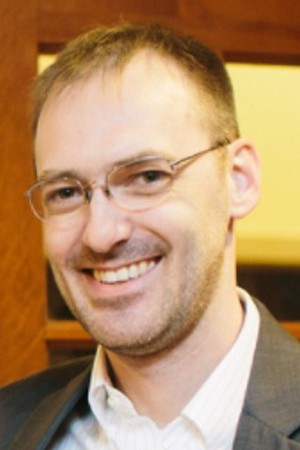
Assistant Professor, Department of Microbiology and Immunology
Uniformed Services University
Dr. Liechti obtained his PhD in Microbiology, Immunology, and Cancer Biology from the University of Virginia before joining the Department of Microbiology and Immunology at Uniformed Services University (USU), initially as a postdoctoral fellow, and subsequently as an assistant professor. His research interests focus on cell division, cell wall (peptidoglycan) biosynthesis / degradation, nutrient acquisition and persistence mechanisms in a number of clinically relevant bacterial pathogens, including Chlamydia trachomatis and Borrelia burgdorferi. His research group utilizes a variety of tools, including visualization (super resolution microscopy), biochemical, and genetic approaches to investigate how some pathogens have become completely dependent on us to meet their most basic metabolic needs as a result of millions of years of co-evolution with their human hosts. Identifying how microbes respond to stress is particularly important when investigating human pathogens. One of the major goals of Dr. Liechti’s research is to determine the mechanism(s) by which bacteria can overcome the effects of stress (resulting from antibiotic treatment or host cell cytokines) in order to help develop the next generation of therapeutics against highly prevalent, human-adapted bacterial pathogens.
13. Dr. Tim Livengood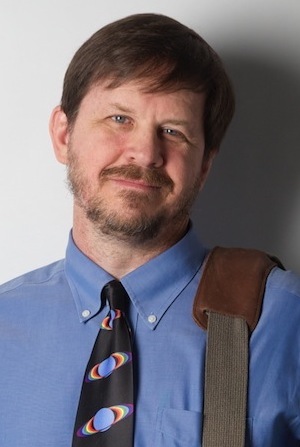
Adjunct Space Science Researcher, National Center for Earth and Space Science Education (NCESSE)
Research Scientist, University of Maryland Department of Astronomy
Dr. Tim Livengood is a senior advisor to SSEP and adjunct research scientist with the National Center for Earth and Space Science Education. He is a research scientist with the University of Maryland Department of Astronomy and works at NASA’s Goddard Space Flight Center. Tim has been a presenter and team leader for the Center’s public and school programs and has visited hundreds of classrooms. His current research uses a neutron-detecting instrument on the Lunar Reconnaissance Orbiter to measure deposits of water on the Moon, and uses infrared spectroscopy from telescopes on Earth to measure composition, temperature, and wind velocity in the atmospheres of other planets.
14. Catherine Maggiori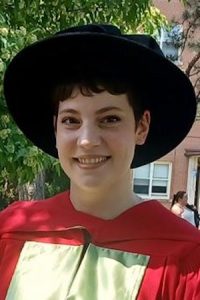
Postdoctoral Researcher
Department of Biology, Georgetown University
Catherine is a postdoctoral researcher in the Johnson Biosignatures Lab at Georgetown University. She completed her Ph.D. in microbiology at McGill University, where she studied unambiguous life detection for astrobiology and field tested instrumentation in extreme Mars analogue environments. Catherine now works on developing methods for agnostic life detection, conducting experiments to define sample complexity through molecular complementarity and DNA sequencing. Catherine is passionate about exploring the intersection of microbial life and astrobiology in terms of planetary protection, biosignature detection, extremophile metabolisms, and astronaut support. She is always excited to contribute to astrobiology outreach and encourage students to pursue space science.
15. Shrestah Mathur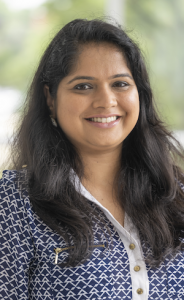
Postdoctoral Associate, Department of Cell Biology and Molecular Genetics
University of Maryland, College Park
Shrestha Mathur is a postdoctoral fellow at the University of Maryland (UMD). She completed her B.Sc. in Genetics, Microbiology and Chemistry in 2007 and M.Sc. in Microbiology in 2009 from Bangalore University, India. She obtained her Ph.D. in Biological Sciences from Binghamton University, NY, USA in 2021. She worked as a Postdoctoral Associate at the University of Maryland from 2021 to 2023 with Dr. Volker Briken’s group, understanding how Mycobacterium tuberculosis affect host inflammasome pathways. Presently, she has been conducting research as a postdoctoral fellow in Dr. Margaret Scull’s lab at the University of Maryland. Shrestha’s current focus is on studying how host airway epithelial mucus membrane affects infection by influenza virus. She is continuously looking for growth opportunities as a microbiologist and looks forward to expanding her contribution to the field of science outreach initiatives.
16. Dr. Sally Moody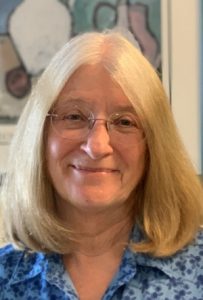
Professor Emerita and Former Chair
School of Medical and Health Sciences
George Washington University
Dr. Moody received her PhD in Neuroscience from the University of Florida where she studied the development of the trigeminal system in chick embryos. She was a postdoctoral fellow in the laboratory of Dr. Marcus Jacobson at the University of Utah Department of Neurobiology where she studied axon guidance and learned cell lineage analysis in Xenopus embryos. In 1983, she joined the Department of Anatomy and Cell Biology at the University of Virginia, where she had the good fortune to become a member of the wider Xenopus community. In 1992, she moved to the Department of Anatomy and Cell Biology at the George Washington University, in which she served as Chair from 2016-2023. Sally’s laboratory has worked on several issues concerning the development of the nervous system, including mechanisms that regulate cell fate and genes that cause birth defects, using mouse, chick and Xenopus. Her laboratory has been funded by grants from the March of Dimes, ALS Association, Sloan Foundation, NIH, NSF and BSF. Dr. Moody has published more than 150 scientific articles and reviews, served on several scientific advisory boards, grant review panels and editorial boards. She edited the “Cell Lineage and Fate Determination” and “Principles of Developmental Genetics” books for Elsevier. She was co-editor with Brian Hall (Dalhousie University) of the Evolutionary Cell Biology book series, and co-editor with Abraham Fainsod (Hebrew University) of “Xenopus, from basic biology to disease models in the genomic era”, both published by Routledge. Dr. Moody was Editor-in-Chief of genesis from 2010-2021, and has served on the Board of Directors and in leadership roles of the Society for Developmental Biology, the Society for Craniofacial Genetics and Developmental Biology and the International Xenopus Board.
17. Travis O’Brien, Ph.D., M.Ed.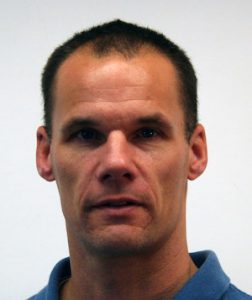
Associate Professor, Department of Pharmacology and Physiology
George Washington University Medical Center
Dr. O’Brien has been involved in education at the undergraduate, graduate and professional level for 20 years. He directs the Physician Assistant Program and graduate pharmacology courses at the GWU School of Medicine and Health Sciences. He is also the co-director of the Reproductive Medicine and Endocrinology course in the GWU MD program and provides numerous lectures throughout the other courses in the MD curriculum. Dr. O’Brien also directs the graduate course in pharmacogenomics and personalized medicine and has authored numerous publications on the topic. His research is focused on translational medicine and the development of predictive pharmacogenomic/toxicogenomic biomarkers in minority populations.
18. Anais Roussel, Ph.D.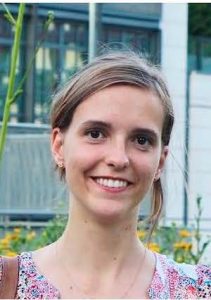
Post-doctoral Fellow
Georgetown University
Anaïs Roussel is an astrobiology and organic geochemistry post-doctoral fellow in the Sarah Johnson Lab at Georgetown University (Washington DC), working in collaboration with NASA Goddard Space Flight Center (Greenbelt, MD). She is interested in biosignatures preservation and detection on other planets and moons of the solar system. Her main focus is on the impact of galactic cosmic radiation on biosignatures preservation on Mars, and how this knowledge can help the NASA and ESA rover missions (Curiosity, Perseverance, Rosalind Franklin) target the most promising sampling sites.
19. J. Reid Schwebach, Ph.D., Ed.M.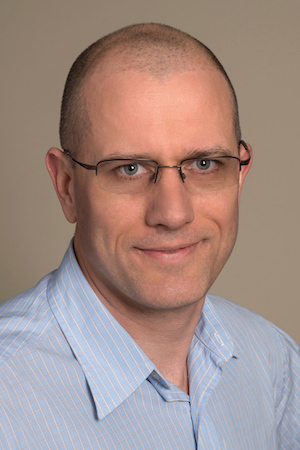
Dual Enrollment Professor and High School Science Teacher
Northern Virginia Community College (NVCC) and Prince William County Public Schools (PWCS)
Dr. Schwebach is a dual enrollment (DE) professor and public high school science teacher at NVCC and Battlefield High School (in PWCS), where he teaches DE Biology, Advanced Chemistry, and other science courses. Reid was a Research Competitiveness Program (RCP) Project Director at the American Association for the Advancement of Science (AAAS), where he managed and developed projects that provided essential international and domestic advisory and support work, proposal review, and infrastructure assessment for RCP (2018-2019). Reid was a Program Manager, Coordinator, and Assistant Professor for the College of Science at George Mason University, from 2010-2018. At Mason, he helped develop: a new undergraduate curriculum in bioinformatics, the STEM Accelerator Program, and various HS STEM programs; he was also the founding coordinator of the Governor’s School @ Innovation Park, taught phage ecology undergraduate research, and was PI or Co-PI of National Science Foundation (NSF) projects. Before Mason, he was a Program Officer and Study Director for the Board on Science Education at The National Research Council (2008-2010). From 2007-2008, he was an AAAS sponsored Science and Technology Policy Fellow at the NSF, in The Division of Research and Learning. In the NYC public school system, he was a METLife Fellow, a Columbia University Principal Intern, and he taught high school chemistry and independent student research at The Beacon School (2002-2007), with additional support from Howard Hughes Medical Institute (HHMI) and the Ellison foundation for summer phage research. His scientific research focused on the immunology of M. tuberculosis, the bacterial pathogen that causes tuberculosis. Reid received his PhD in microbiology and immunology from the Albert Einstein College of Medicine. He holds Ed.M. (secondary science education) and M.A. (international education development) degrees from Teachers College, Columbia University. He has a BA in agriculture and a BS in biochemistry from New Mexico State University. He was raised on a family farm in central New Mexico.
20. Dr. Margaret Scull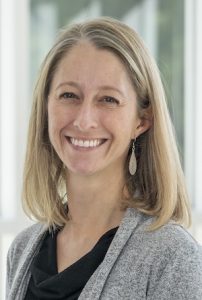
Associate Professor, Department of Cell Biology and Molecular Genetics
University of Maryland, College Park
Margaret Scull obtained her Ph.D. in Microbiology and Immunology from the University of North Carolina at Chapel Hill in 2009. After completing her post- doctoral research at the Rockefeller University, she joined the faculty at the University of Maryland – College Park as an Assistant Professor. Dr. Scull’s lab works at the interface of virology and cell biology. Specifically, her research focuses on virus-host interactions in the airway epithelium – the primary target for infection by influenza virus and other clinically relevant respiratory viruses. Her research uses a variety of tools, including microscopy, deep sequencing technology, viral genetics, and in vitro primary cell model systems to understand mechanisms of host restriction and innate defense against viral infection. In addition to her work in the lab, Dr. Scull has been active in science education Outreach, including after school mentoring in STEM education and volunteering as both an educator on the BioBus mobile laboratory and as a judge at science fair competitions in the New York City area.
21. Nicholas Shworak, M.D., Ph.D., M.A.Ed.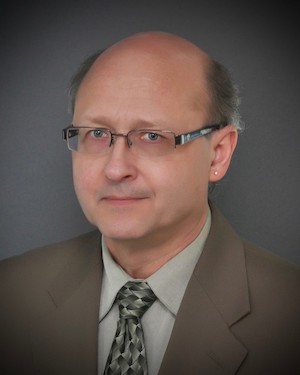
Professor, Department of Pharmacology and Physiology
School of Medicine and Health Sciences, The George Washington University
Dr. Shworak is a Professor of Pharmacology & Physiology and a Medical Educator at the School of Medicine and Health Sciences, The George Washington University (DC). His degrees are: B.Sc. (Zoology, 1981; University of Calgary, AB, Canada), M.D. (1985; University of Edmonton, AB), Ph.D. (Molecular Biology, 1990; University of Calgary), and M.A.Ed. (2022; The George Washington University). For almost 30 years, he studied the roles of polysaccharides in health and disease in a variety of disciplines including cardiology, neurology, virology, as well as developmental and reproductive biology. Much of his biomedical research was conducted at Massachusetts Institute of Technology, Harvard University, and Dartmouth College. Most recently Dr. Shworak has identified a gene that protects against inflammatory disorders and may be a genetic risk factor for coronary artery disease. He presently teaches pre-clerkship sciences to medical, physician assistant, and graduate students.
22. Dr. Julia Slocomb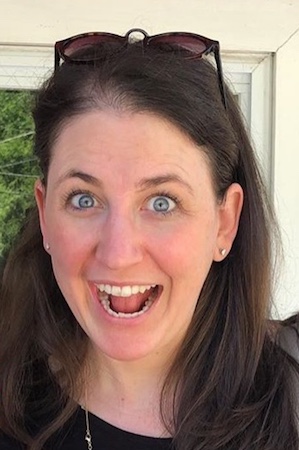
Senior Lead Reviewer
Food and Drug Administration
Julia earned her B.S. in Biology with a minor in English Literature from Villanova University and her Ph.D. from the Cellular, Molecular, Developmental Biology and Biophysics program at Johns Hopkins University. Her dissertation focused on modulation and visualization of neuronal circuits that drive behavior. Between her undergraduate and graduate degrees, Julia spent 5 years managing interdisciplinary clinical research studies for the Pennsylvania State University College of Medicine’s Department of Neurology. As a senior lead reviewer at the FDA, Julia reviews neurological and physical medicine devices for safety and effectiveness. She also writes new medical device regulation and is involved in the development of standards and other international collaboration efforts in Brain-Computer Interfacing device space. In her spare time she works as an editor of science fiction and fact articles to help bring cutting edge science to the public.
23. Dr. Michelle Starz-Gaiano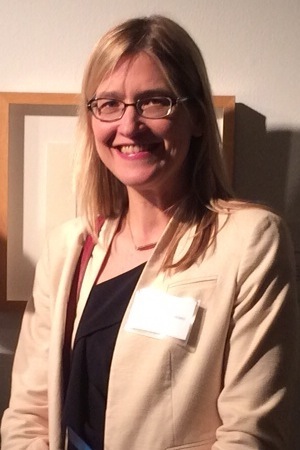
Adjunct Staff Member, National Center for Earth and Space Science Education
Professor, Department of Biological Sciences
University of Maryland Baltimore County
Dr. Starz-Gaiano investigates the genetic control of animal development. In particular, her studies focus on understanding how cells adopt different identities and move through complex environments. She uses the vast genetic tools developed in fruit flies to identify new molecules involved in these processes. Interestingly, many of the same genes that regulate development in flies are required in the development of other animals, including humans. Currently, much of the work from her research group focuses on the regulation of the Janus Kinase and STAT molecular signaling pathway. Dr. Starz-Gaiano earned a bachelor’s degree from MIT, a PhD from NYU, and completed postdoctoral work at Johns Hopkins Medical School before starting at UMBC in 2008.
24. Dr. Pushpa Tandon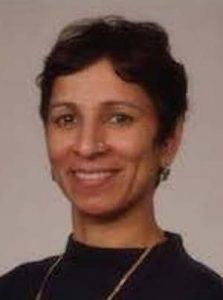
Program Director, Cancer Imaging Program
National Cancer Institute
Dr. Pushpa Tandon received her Master’s in Biochemistry and her Ph.D. in Neurochemistry, from the University of Lucknow, India. Dr. Tandon is currently a Program Director, within the Cancer Imaging Program, and the Administrative Deputy Director, of the Quantitative Imaging Network, an international Network for development of quantitative imaging tools for prediction of tumor response to treatment, at the National Cancer Institute, Maryland, USA. She has been working in the field of Cancer Imaging for over 25 years and has developed and manages several international programs and collaborations around the world. She was involved with the establishment of low cost, point-of-care technologies for cancer program at NCI and currently manages several of the international project under it . She has been a mentor to several Ph.D students and enjoys working with students at all levels. Her main interests are cancer imaging, cancer biomarkers, inflammation and nanotechnology. Dr. Tandon is interested in the holistic approach to medicine. She was awarded the United States Embassy Science fellowship in summer 2018 to develop a bilateral Indo-US bilateral program on Indian Traditional medicine and cancer. She has published over 50 peer review articles and several book chapters.
25. Alex Theos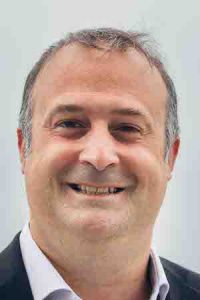
Adjunct Staff Member, National Center for Earth and Space Science Education
Associate Professor, School of Health
Georgetown University
Alex Theos is an Associate Professor at the Department of Human Science in the School of Health at Georgetown University. His research interests include the biogenesis of specialized organelles, focusing on the intracellular membrane trafficking pathways. Currently, his research lab is working to understanding the cell biology of the GPNMB protein, which is associated with diverse pathologies including melanoma and pigmentary glaucoma.
26. Dr. Harri Vanhala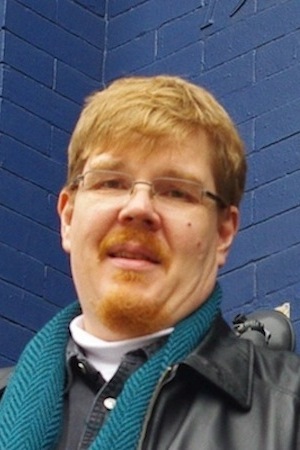
Adjunct Space Science Researcher, National Center for Earth and Space Science Education
Senior Scientist, Arctic Slope Technical Services
Originally from Finland, Harri received his Ph.D. in astronomy from the University of Oulu. Harri has worked in various research and education organizations in the Unites States for 20 years. He is a Senior Scientist at Arctic Slope Technical Services, where he works with NASA’s Space Technology and Human Exploration and Operations Mission Directorates to help select new space technology projects for development and experiments for flight to the International Space Station. His science research focuses on the use of computer simulations to investigate the origin of the Solar System and the formation of stars and planetary systems across the Universe. His science education activities have included hundreds of visits to grade K-12 classrooms, conducting teacher training workshops, teaching college courses, and presentations to families and the public—he is one of the presenters for the Center’s Family Science Night program at the Smithsonian National Air and Space Museum.
27. Dr. Kol Zarember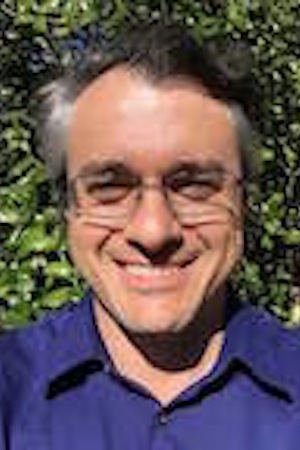
Adjunct Staff Member, National Center for Earth and Space Science Education
National Institute for Allergy and Infectious Diseases
National Institutes of Health
Kol Zarember obtained his PhD from the New York University School of Medicine and performed postdoctoral research at Genentech, Inc. before moving to the National Institutes of Health. Dr. Zarember is currently the Scientific Operations Manager of the Laboratory of Clinical Immunology and Microbiology and his research interests focus on the recognition of microbes by the human immune system and on how the innate immune system counters invasion by pathogens. Through studying patients with various rare genetic alterations in immunity, he works to better understand how neutrophils, the most abundant white blood cell in the circulation, prevent infections and contribute to other aspects of inflammation and human biology including atherosclerosis.
